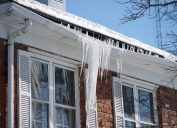7 Secrets for Buying a House Right Now, According to Real Estate Experts
There are some important seasonal considerations for home buyers in the colder months.
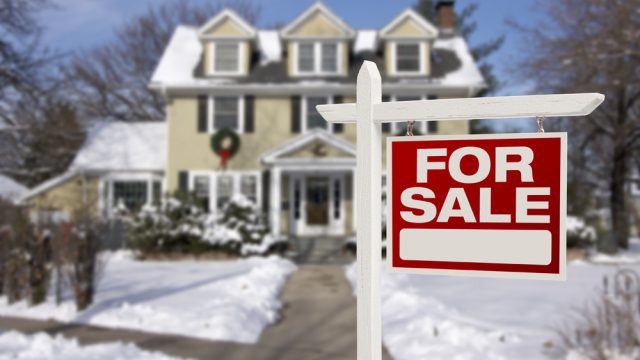
Whether you've just started dipping your toe into the market or have been searching for years, the perfect house can become available in any season. But as with regular upkeep and maintenance, closing on a new property during the colder months can be quite different than doing so in the summer. Before you start packing your belongings and lugging boxes in the crisp air, there are a few things you should know that could help you avoid mistakes—and make the entire process a little easier. Read on for the secrets to buying a house in the winter, according to real estate experts.
READ THIS NEXT: The First Things Guests Notice When They Come Into Your Home, Experts Say.
1
Ask for a better picture of what the property looks like in the warmer months.

Winter certainly has plenty of its own charms, and many homes look beautiful covered in a blanket of fresh snow. But before you finalize your investment, you might want to get a better idea of what your potential property looks like in the full bloom of summer, and how well the seasonal amenities work.
"When touring homes during the colder months as a potential buyer, keep in mind that many of the exterior amenities may be 'out of service' for the season," Jackie Dunphy, a Long Island-based real estate agent with the Corcoran Group, tells Best Life. "Pools are closed and covered, and sprinkler systems have been winterized, so it is smart to get letters from the companies who service these items that attest to their functionality before closing—or you could be in for an unpleasant surprise come spring."
"It's also helpful to see photos of the property's landscaping, as trees and shrubs have lost their greenery!" she adds. "Ask the homeowner for photos of gardens and yards taken during warmer weather. That way, you know what you're buying."
2
You may be at a buyer's advantage during the winter.
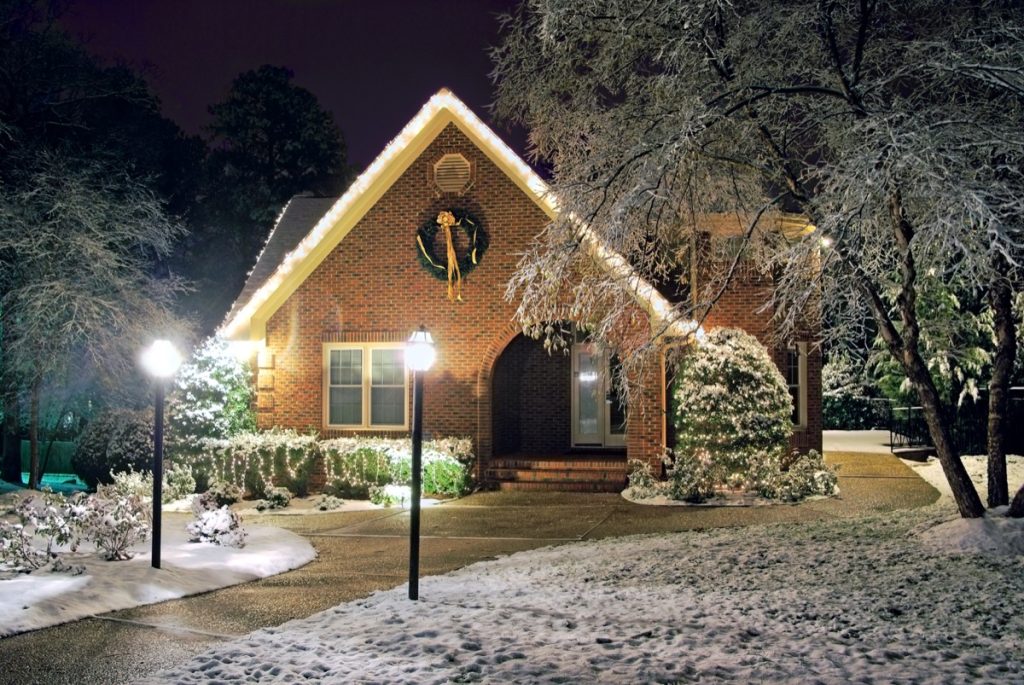
The past few years may have made the housing market seem like a pretty volatile place where anything goes. But if you happen to be buying a house in the winter, experts say you might find that you're at a slight advantage compared to other seasons.
"Buyers may have an easier time purchasing a home during the colder months," Clare Trapasso, executive news editor of Realtor.com, says. "There is generally less competition in the market. That means they may be able to successfully submit a lowball offer or receive concessions in these slower months when sellers may not be receiving as many offers."
READ THIS NEXT: 9 Small Towns in the U.S. With the Most Affordable Houses to Buy.
3
You may want to request one extra inspection before you finalize the purchase.
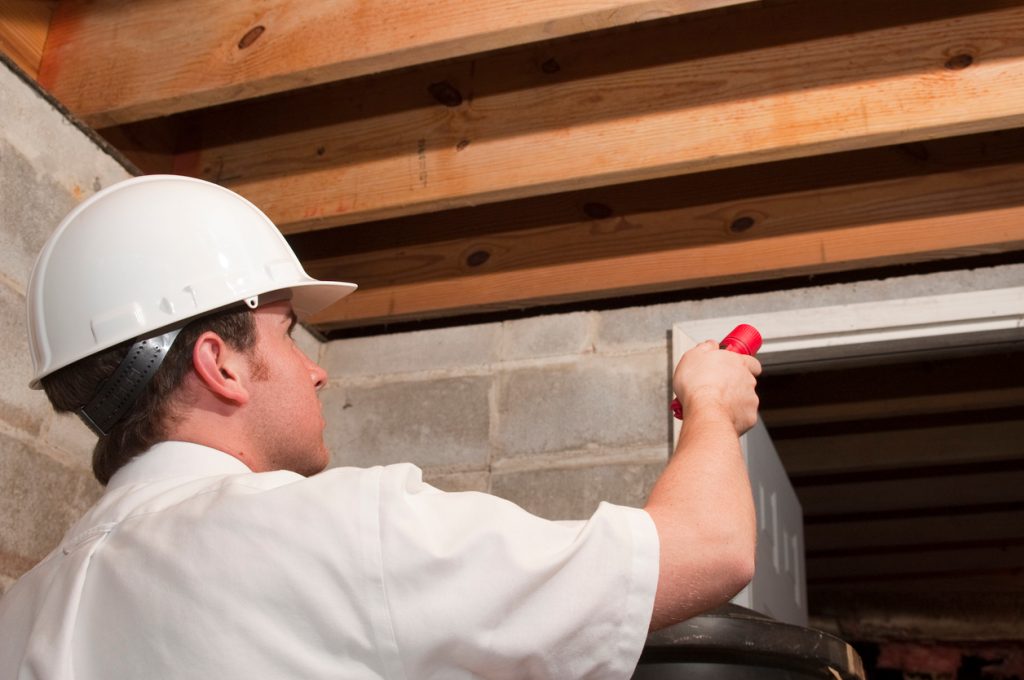
Depending on where they're located or how much maintenance they may need, your prospective dream home might have a pest problem before you even move into it. Fortunately, experts say house hunting in the colder months can make it clear just how bad of an issue it is—and allow you to prepare and negotiate accordingly.
"Rodents and other critters like to move into warm basements during the winter," says Dunphy. "A pest inspection before closing will ensure you don't have any unwanted guests!"
4
It's easier to spot any issues with a home during the colder months.
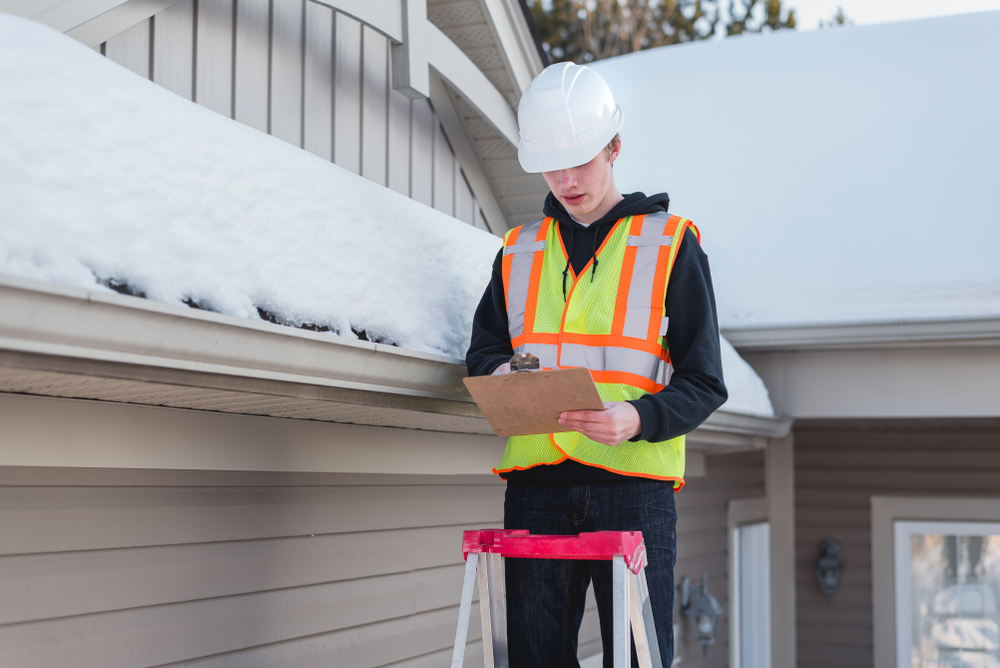
When you come across a property that seems like your dream home, it can be easy to lose sight of any major issues that could be waiting once the ink dries on your contract. But those house hunting during the cooler months have the opportunity to see how some vital systems work and if there are going to be any costly repairs down the line.
"Buying a home in the winter is great because you get to see the house as it is without all of those pretty flowers blooming in front," says Trapasso. "It will be more apparent if there are problems with the boiler or the heating system within the home, which can be costly to upgrade or replace. Is the home drafty? Is the deck sagging under a foot of snow a sign that it might need to be replaced or repaired?"
For more financial advice delivered straight to your inbox, sign up for our daily newsletter.
5
You might be able to negotiate a better move—or at least speed up the process.

Once the holidays have wrapped up, winter can take on a much slower pace than other times of the year. However, experts say this isn't necessarily the case with home sales, as the natural lull in transactions can clear the way for any deals that are going through.
"Since you're not buying during the busier spring and summer seasons, you may receive a speedier closing," Trapasso says. "You may also have more flexibility—and potentially even be able to negotiate deals with movers and other companies."
6
You should use the colder weather to take note of one potential hazard on your property.
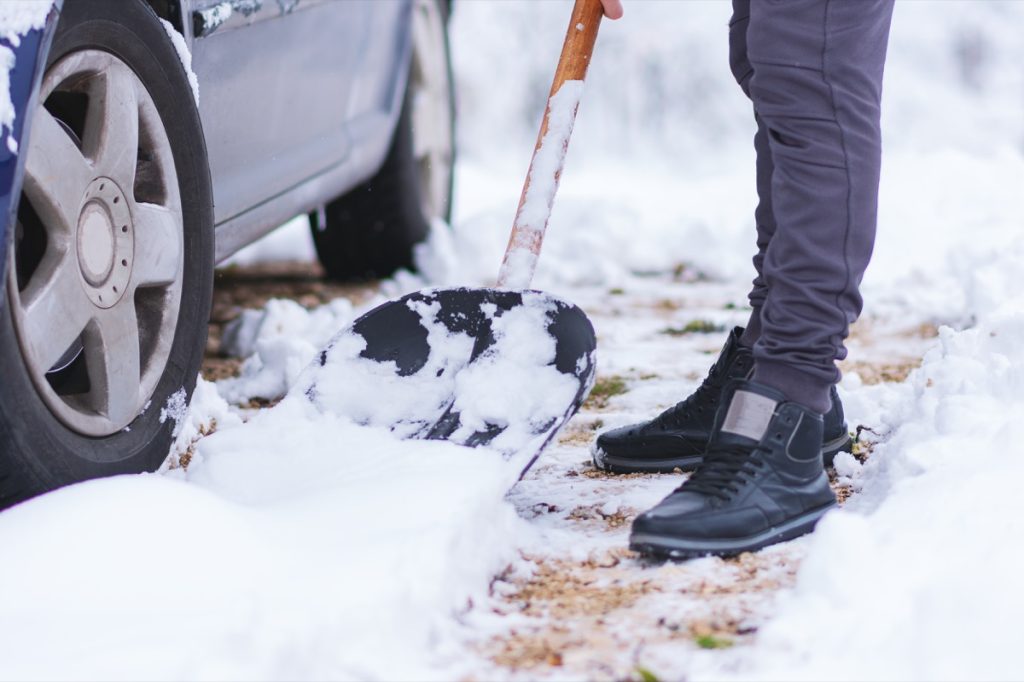
Even though each season presents its own challenges for homeowners, colder temperatures can make it clear when one particular feature can become a problem. According to Dunphy, this means checking any sloped roads or paths that can become more hazardous during the winter.
"For safety's sake, remember that steeply graded driveways are more hazardous during the winter months. This is something to keep in mind as these surfaces will need more salting or sanding," she says. "And if the house shares a communal driveway, find out who is responsible for the snow plowing. Do the homeowners who use the driveway share the responsibilities?"
READ THIS NEXT: Don't Refinance Your Mortgage Without Doing This First, Experts Warn.
7
Get an idea of how snow removal works on your street.
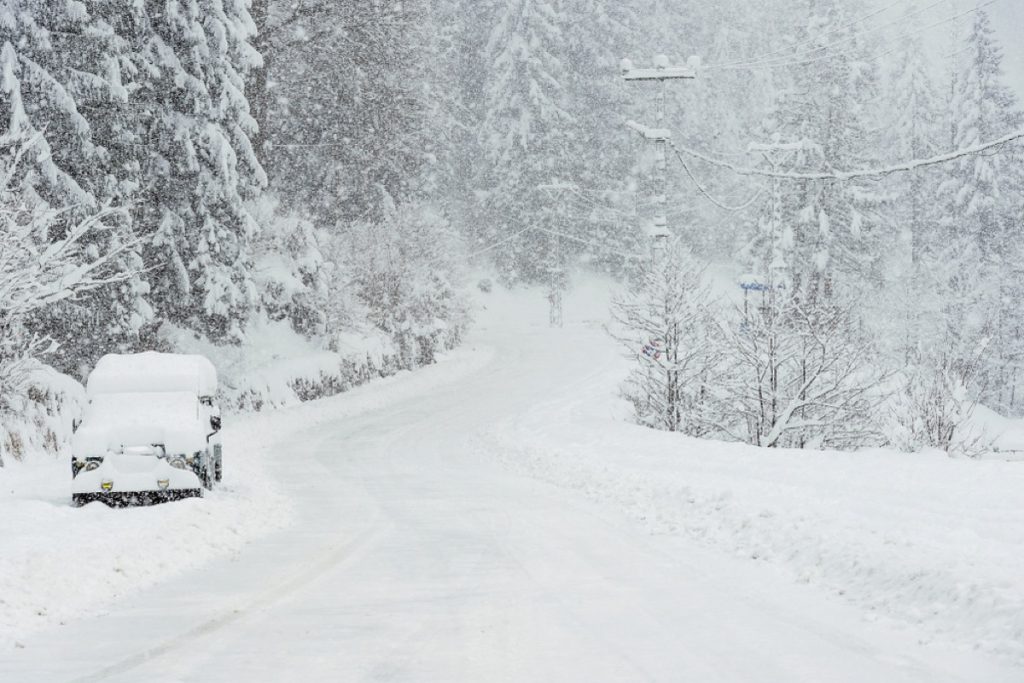
A blanket of soft, white snow can make an already beautiful neighborhood even more appealing. Unfortunately, if your prospective house is in a climate where blizzards are a regular occurrence, it could also mean that your picturesque property will require a lot of extra work in the winter.
"If you notice the road is covered in snow, check whether the street the house is on is private or public," says Dunphy. "If it's a private street, the town or municipality will not plow the area, hence the homeowners are responsible. This can create unexpected extra maintenance costs if you are caught unaware."
Best Life offers the most up-to-date financial information from top experts and the latest news and research, but our content is not meant to be a substitute for professional guidance. When it comes to the money you're spending, saving, or investing, always consult your financial advisor directly.
